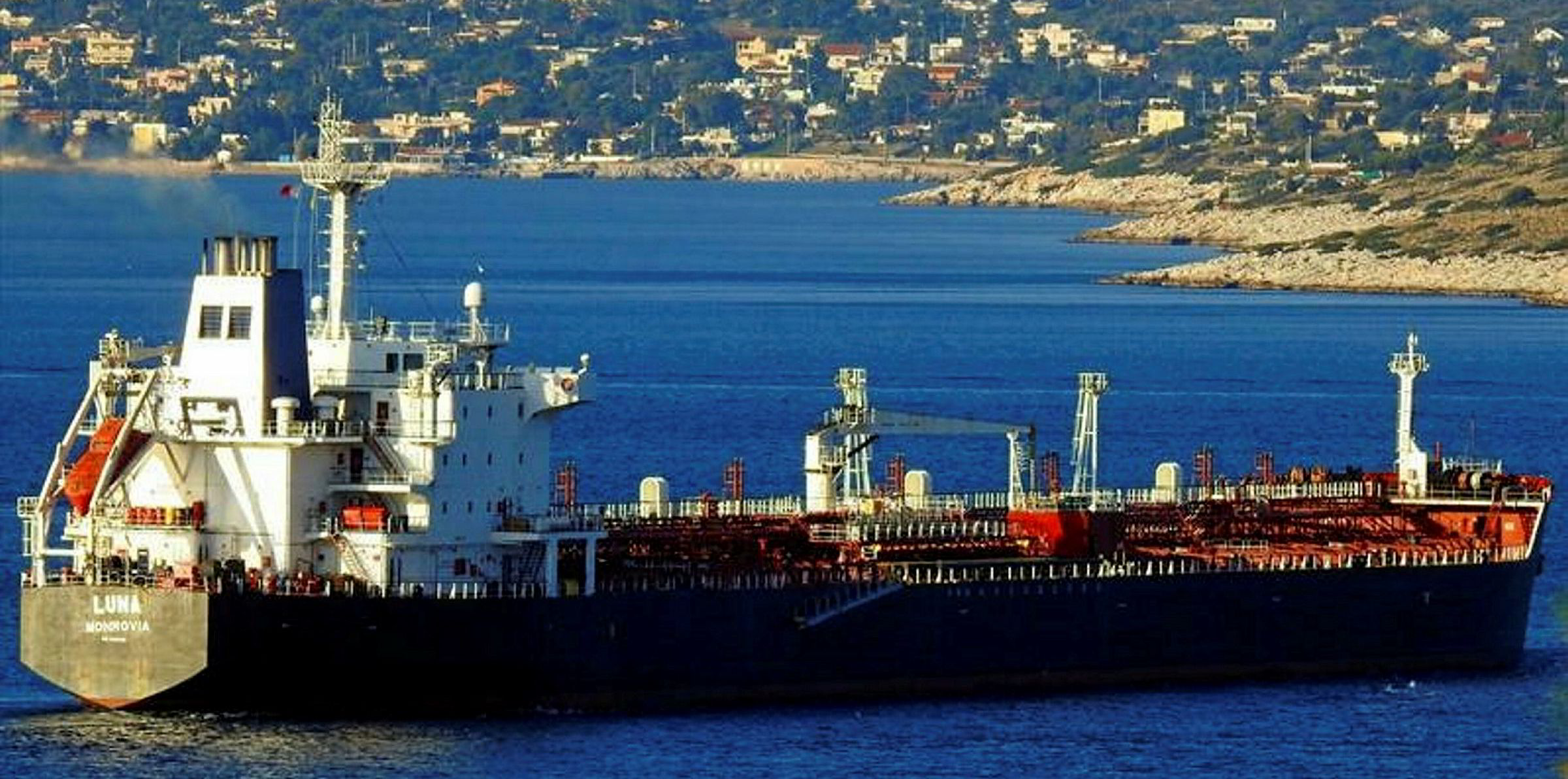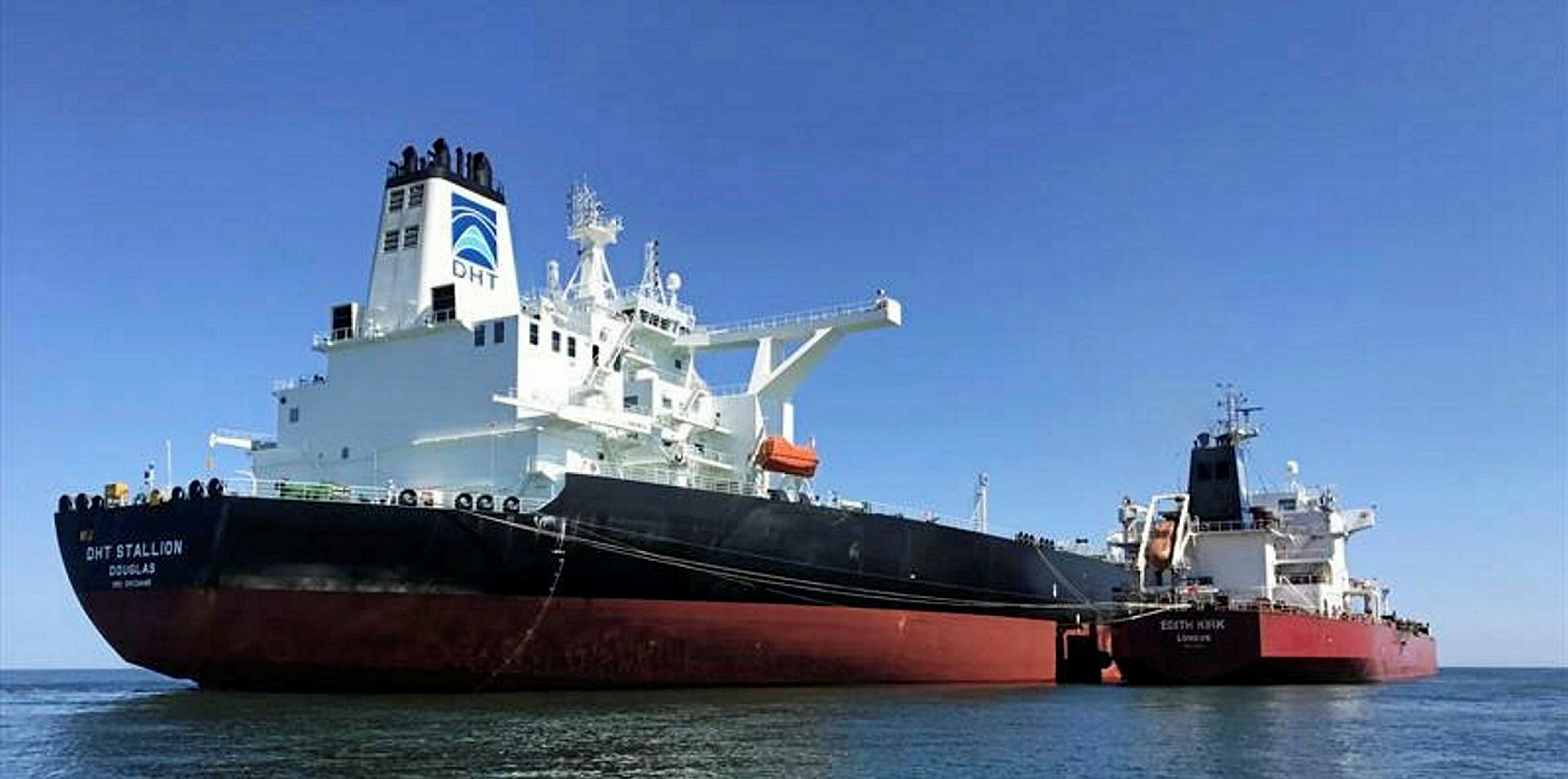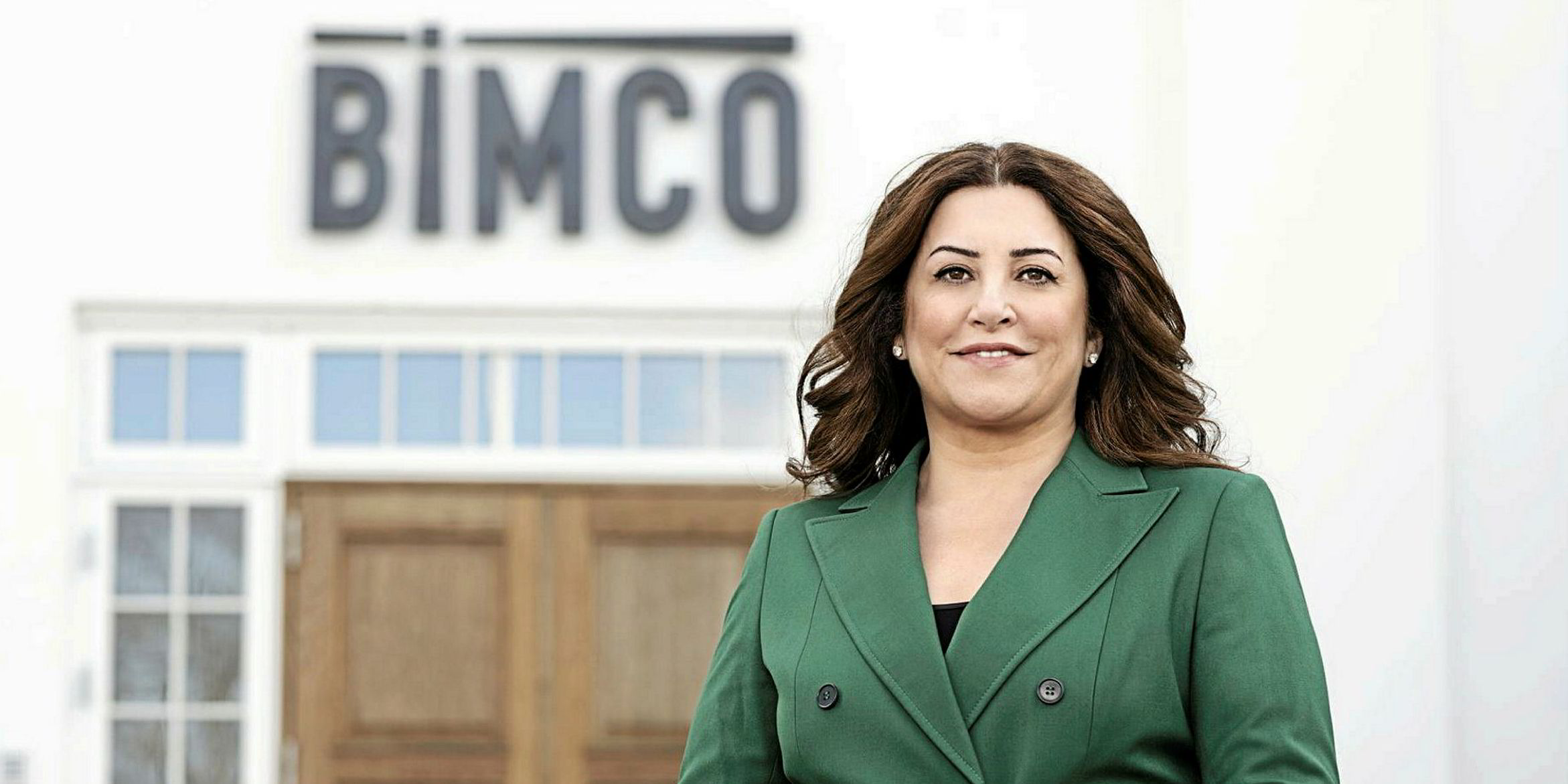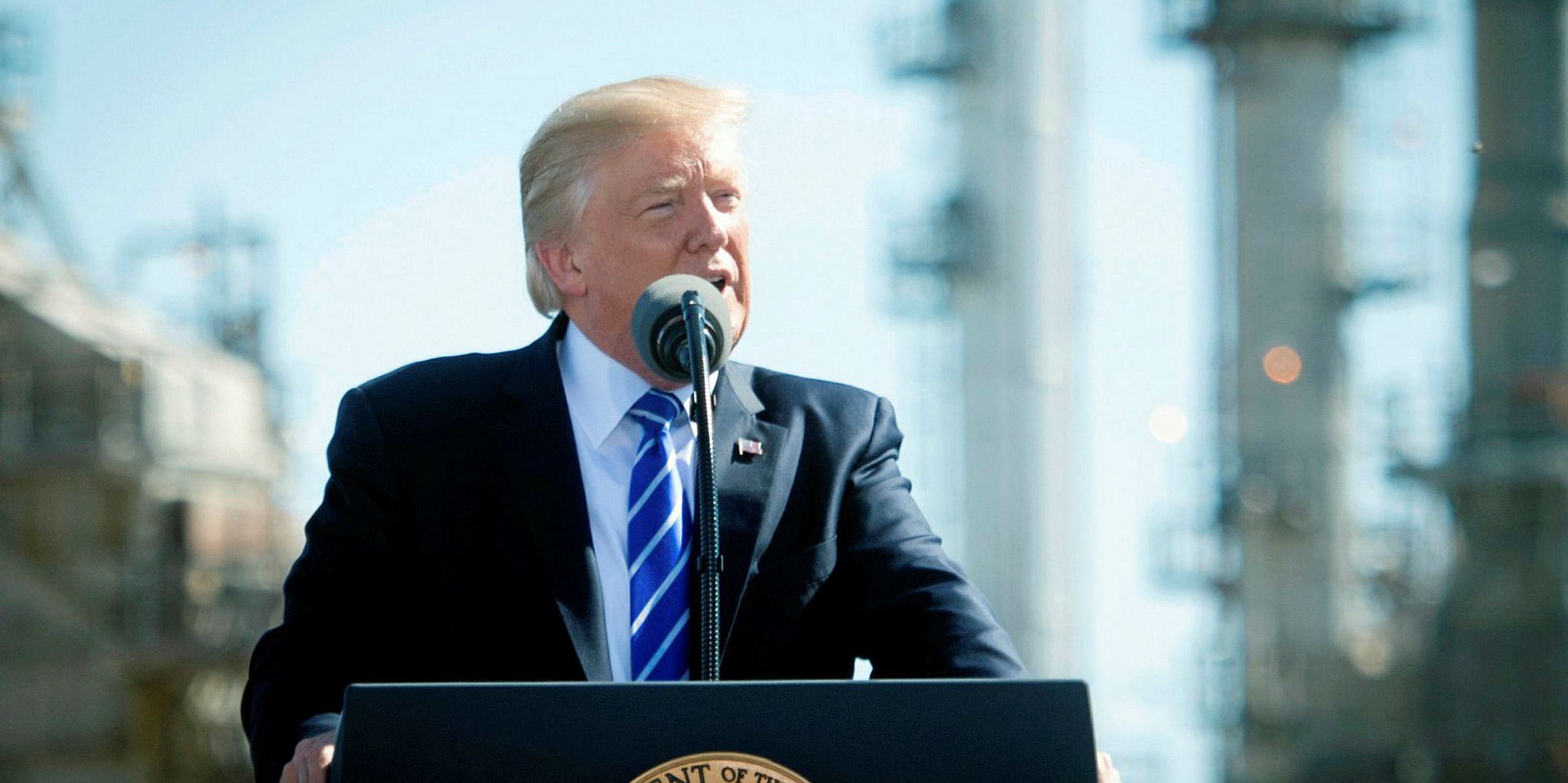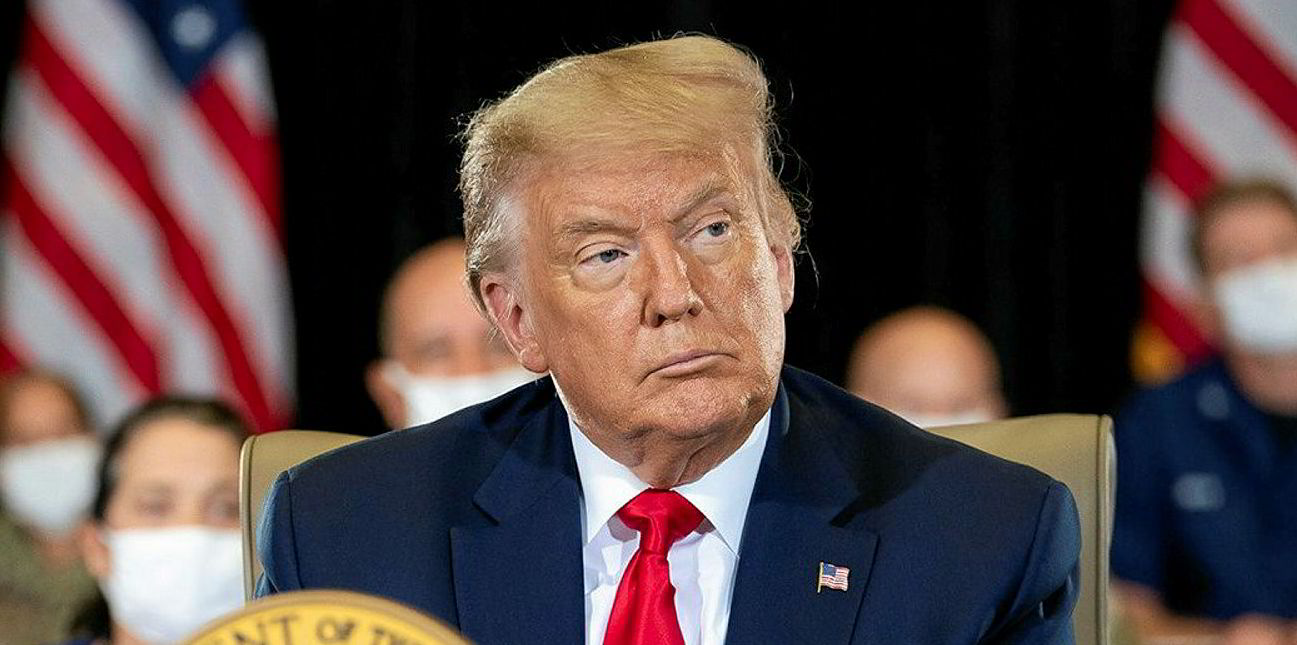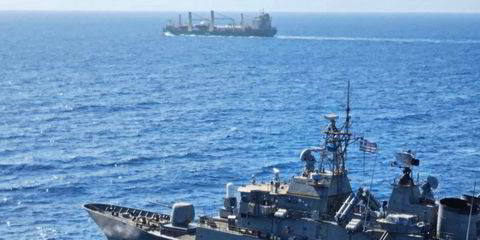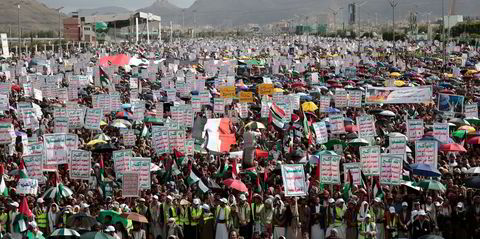The purported owners of the 1m-plus barrels of Iranian gasoline that the US took from four Greek-owned tankers during their voyage to Venezuela blasted the US in court papers on Tuesday.
Mobin International, Oman Fuel and Sohar Fuel — allegedly Iranian front companies — said the US never actually connected the gasoline to the Iranian Revolutionary Guard Corps (IRCG) when they sought a court order allowing the cargo seizure over the summer.
Instead, they said the country's attorneys only made past connections between them and Iran's military.
They seek the dismissal of the seizure order and the return of the gasoline.
"Even assuming the truth of the government’s allegations, it cannot be the case [that] if a party has perviously dealt with the IRGC, that every transaction the party undertakes thereafter presumptively involves assets of the IRGC," the trio wrote.
"That is, however, the government’s theory in this case."
The gasoline was aboard four ships — the 37,400-dwt Bella and 37,300-dwt Luna (both built 2000), 47,400-dwt Bering (built 1998) and 46,200-dwt Pandi (built 1996) — when the cargo seizure was approved in US courts in July.
It was unclear how the US would enforce the order, but in mid-August officials said it had convinced the ships' owners to offload the gasoline in a ship-to-ship transfer and that it was en route to Houston.
The seizure order relied on a "confidential reliable source" who said Mobin International arranged those shipments and others. The US argued the IRCG, which it considers a terrorist organisation, was using the cargo to further its mission, validating the seizure.
"The government in this case seeks to forfeit [gasoline cargoes] that were traded between foreign entities and countries with no connection to the IRCG and that were not in any violation of any US law," Tuesday's filing read.
"By that logic...the government could seize property anywhere in the world from any party it alleges to have had previously dealt with the IRGC."
Mobin, Sohar and Oman Fuel first moved to free the gasoline on 1 September, filing a claim on the seized property.
They said each owned a portion of the gasoline and that it was headed to Trinidad, not Venezuela, where it would be sold on to Emirati company Citi Energy.
The week prior to the claim, the US seized their websites, accusing them of being fronts for Iran.
Their allegations stand somewhat in contrast to remarks made by Iranian Oil Minister Bijan Namdar Zanganeh after the US said it had confiscated the gasoline.
"The cargoes were loaded from Iran, but neither the ships nor the cargoes belonged to Iran, and the US declared victory for itself in the middle of this," Zanganeh reportedly said.
"The fuel was Iranian, but it had been sold to Venezuela and its payment had been cleared."
The shipment would have been the second Iran sent to Venezuela, both US geopolitical rivals, this year after five Iranian-flagged tankers made deliveries in late May and early June.
The US has maintained a stringent set of sanctions on both countries in an effort to top their ruling regimes.
US State Department officials have argued that the sanctions have worked, cutting off all Venezuelan gasoline exports except from Iran.
But the trade continues, with three more Iranian ships expected to be headed to Venezuela and a VLCC laden with gas condensate turning up at a Venezuelan port last week.
An analysis from TradeWinds shows there are 179 ships with connections to Iran and Venezuela that can carry out trade between the countries, including 65 tankers.
